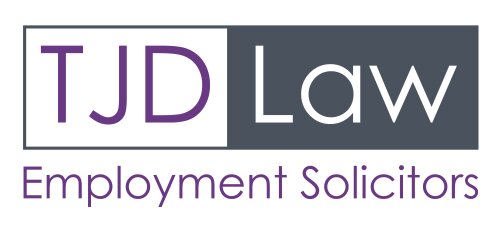Best Sexual Harassment Lawyers in United Kingdom
Share your needs with us, get contacted by law firms.
Free. Takes 2 min.
Or refine your search by selecting a city:
List of the best lawyers in United Kingdom
About Sexual Harassment Law in United Kingdom
Sexual harassment in the United Kingdom is recognized as a form of discrimination under the Equality Act 2010. This act provides individuals with protection against unwanted conduct of a sexual nature that violates their dignity or creates an intimidating, hostile, degrading, humiliating, or offensive environment. Sexual harassment can occur in various settings, including workplaces, educational institutions, and public spaces. It is crucial for individuals to understand their rights and the legal protections available when facing such conduct.
Why You May Need a Lawyer
There are several situations in which you might require legal assistance related to sexual harassment:
- Employment Issues: If you experience sexual harassment at work, a lawyer can help you understand your rights, file a complaint, and pursue legal action if necessary.
- Discriminatory Practices: If you believe you've been discriminated against due to sexual harassment, legal advice can guide you through the process of seeking justice.
- Complex Legal Processes: Navigating the legal system can be challenging, and a lawyer can offer expertise in handling legal documentation and proceedings.
- Personal Protection: Lawyers can assist in obtaining restraining orders or other protective measures if you are at risk of further harassment.
- Seeking Compensation: If you're entitled to compensation for the harassment experienced, a lawyer can help you claim for damages.
Local Laws Overview
The key aspects of sexual harassment laws in the United Kingdom under the Equality Act 2010 include:
- Protected Characteristics: Sexual harassment forms part of unlawful discrimination based on sex, a protected characteristic under the Act.
- Employer's Duty: Employers are obligated to prevent harassment in the workplace, and failure to do so can make them liable.
- Vicarious Liability: Organisations and employers may be held responsible for harassment carried out by their employees.
- Timeframe: Claims must generally be made within three months of the incident occurring, although extensions can be granted in specific situations.
- Remedies and Compensation: Individuals may receive compensation, including for injury to feelings and, in some cases, punitive damages.
Frequently Asked Questions
What constitutes sexual harassment in the workplace?
Sexual harassment involves unwanted conduct of a sexual nature that violates your dignity or creates an intimidating, hostile, degrading, or offensive environment at work.
Can sexual harassment occur outside the workplace?
Yes, sexual harassment can happen in various environments, including schools, public places, and within organizations that offer services to the public.
What should I do if I experience sexual harassment?
Document the incidents, reach out to a trusted colleague or friend, report the behavior to your HR department or relevant authority, and consider seeking legal advice.
Are there specific laws protecting students from sexual harassment?
Educational institutions must adhere to laws preventing discrimination, including sexual harassment, as stipulated by the Equality Act 2010.
Can I file a claim if I have been sexually harassed online?
Online sexual harassment may be addressed under harassment and cybercrime laws, and it is advisable to seek legal guidance on pursuing such claims.
Is there a time limit for making a complaint about sexual harassment?
Generally, you must file a sexual harassment claim within three months of the last act of harassment, but exceptions may apply in certain circumstances.
What compensation can I receive for a successful claim?
Compensation may cover loss of earnings, future losses, and damages for injury to feelings, with amounts based on the severity of the case.
Can I report sexual harassment anonymously?
While it may be possible to make an anonymous report, it can limit the ability to take legal action or enforce protective measures.
What is an employer's responsibility in preventing sexual harassment?
Employers must take reasonable steps to prevent harassment, including establishing clear policies, providing training, and addressing complaints promptly.
What if my employer fails to act on my harassment complaint?
If your employer does not address your complaint, you may seek legal advice to understand the next steps, which might include external reporting or legal action.
Additional Resources
Here are some resources and organizations that can help with sexual harassment issues in the UK:
- Equality and Human Rights Commission (EHRC): Provides guidance on rights and protections under the Equality Act.
- ACAS (Advisory, Conciliation, and Arbitration Service): Offers advice on handling workplace disputes and harassment claims.
- Rights of Women: A charity that provides free legal advice to women experiencing sexual harassment.
- Citizen's Advice Bureau: Offers support and guidance on dealing with sexual harassment and understanding your rights.
Next Steps
If you need legal assistance with sexual harassment issues, consider taking the following steps:
- Document Everything: Keep detailed records of all incidents, communications, and actions taken related to the harassment.
- Seek Support: Reach out to support services for advice and hold discussions in safe environments about your situation.
- Consult a Lawyer: Find a solicitor experienced in handling sexual harassment cases to discuss your options and start any necessary legal action.
- Report Internally: If applicable, report the harassment to your employer or institution’s HR or equivalent body.
- Consider Mediation: Explore whether alternative dispute resolution might be a viable option to resolve the situation.
Lawzana helps you find the best lawyers and law firms in United Kingdom through a curated and pre-screened list of qualified legal professionals. Our platform offers rankings and detailed profiles of attorneys and law firms, allowing you to compare based on practice areas, including Sexual Harassment, experience, and client feedback.
Each profile includes a description of the firm's areas of practice, client reviews, team members and partners, year of establishment, spoken languages, office locations, contact information, social media presence, and any published articles or resources. Most firms on our platform speak English and are experienced in both local and international legal matters.
Get a quote from top-rated law firms in United Kingdom — quickly, securely, and without unnecessary hassle.
Disclaimer:
The information provided on this page is for general informational purposes only and does not constitute legal advice. While we strive to ensure the accuracy and relevance of the content, legal information may change over time, and interpretations of the law can vary. You should always consult with a qualified legal professional for advice specific to your situation.
We disclaim all liability for actions taken or not taken based on the content of this page. If you believe any information is incorrect or outdated, please contact us, and we will review and update it where appropriate.
Browse sexual harassment law firms by city in United Kingdom
Refine your search by selecting a city.

















